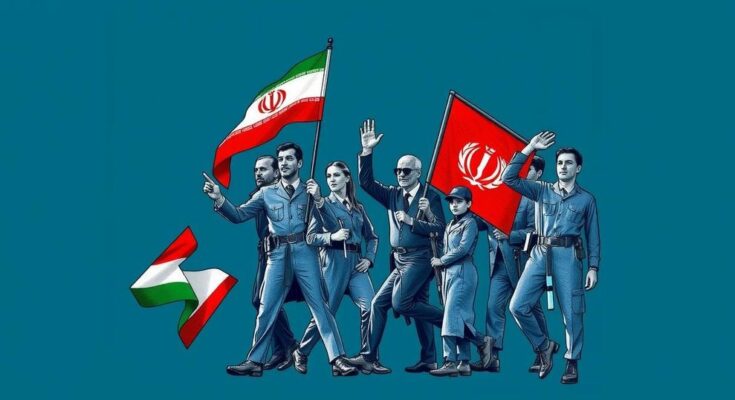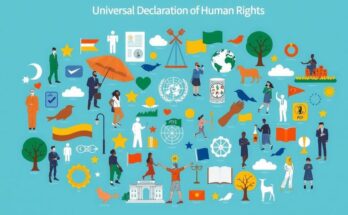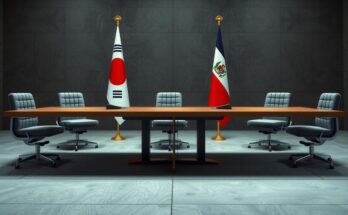Mai Sato, UN Special Rapporteur on human rights in Iran, reports severe declines in civic freedoms, alarming execution rates, and worsening conditions for women under new laws. Despite recognition of civil society’s role, the Iranian government remains opaque, posing challenges in addressing human rights effectively. The situation demands international scrutiny and immediate action to ensure accountability and advocate for those whose rights are systematically oppressed.
The Iranian regime’s tightening grip is signaling a chilling erosion of civic space, as highlighted by Mai Sato, the UN Special Rapporteur on human rights in Iran, during her recent discourse at UN Headquarters in New York. She detailed dire issues: rampant executions, a dismal spotlight on women’s rights, and an opaque government that shrouds its actions in secrecy. The atmosphere for human rights defenders and journalists worsens daily, with widespread charges on vaguely defined national security offenses. In her poignant observations over her initial months, Sato illuminated the stark realities faced by many in Iran. Civic freedoms are under siege; activists and journalists find themselves ensnared by authorities, often ending up in detention without access to necessary medical care. The surge in executions is particularly alarming, with counts soaring to 93 in August and beyond 140 by October. Many of these relate to drug offenses, despite supposed reforms meant to curb such actions. Women face particularly harsh conditions with the passage of the chastity and hijab bill, which tightens restrictions and imposes severe penalties for non-adherence. This legislative move signals not merely a regression but an onslaught on the progress symbolized by the Women, Life, Freedom movement. Transparency remains elusive; the Iranian government’s reluctance to release data severely hampers comprehensive evaluations of the human rights situation. Sato highlights the invaluable role of well-connected civil society organizations in this challenging landscape, vital for amplifying the voices of the oppressed. She expresses a cautious hope, saying, “I feel confident about understanding and reflecting the views of Iranian civil society,” yet she acknowledges the hurdles posed by the lack of governmental engagement. As she presses forward with her mandate, there’s an urgent clarion call for the global community to take heed of the escalating human rights crisis in Iran. The deteriorating conditions, escalating executions, and tightening grip on civic freedoms necessitate not just scrutiny but robust intervention to hold the Iranian regime responsible for its actions.
The situation of human rights in Iran has drawn increasing global attention, particularly following the resurgence of protests led by women advocating for their rights and personal freedoms. With new laws, such as the chastity and hijab bill emphasizing strict compliance, civic space for activism has become progressively constricted. Mai Sato’s remarks come at a critical juncture where the delicate balance of civic liberties is being tested, and the need for international oversight is paramount.
In summary, the state of human rights in Iran is dire, underlined by a drastic reduction in civic space, an alarming rise in executions, and increasing restrictions on women’s rights. Ms. Sato’s insights beckon not only national introspection but also international action to confront these injustices head-on. If meaningful change is to be fostered, the voices of civil society must be amplified, and the Iranian government held accountable for its actions and policies.
Original Source: irannewsupdate.com



